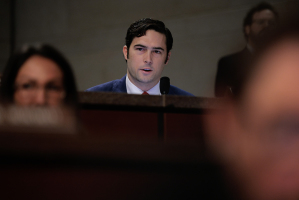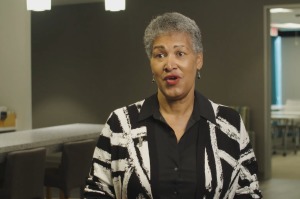Guantanamo Prisoner 'Torture' Tapes to Be Released?
A new lawsuit filed in a New York City court on Monday seeks to make disturbing videos of the treatment of a Guantanamo Bay prisoner public.
The video involves a Saudi national whose treatment at the base was dubbed “torture” by a former Bush Administration official.
The lawsuit was filed a day before the detention facility marked its 10th year since the U.S. sent its first prisoners in the war on terror to the Cuba-based detention and interrogation center.
The prisoner involved in the lawsuit, Saudi national Mohammed al-Qahtani, was captured in 2001 in Afghanistan while the U.S. was on the hunt for 9/11 orchestrator Osama bin Laden. Government investigators believe that Qahtani was planning to take part in the 9/11 attacks.
In 2009, Susan J. Crawford, hired by then Secretary of Defense Robert Gates to review practices at the highly controversial detention facility, told The Washington Post that torture indeed occurred at the troubled facility, and the Qahtani endured gruesome treatment during his detention.
“We tortured Qahtani,” she said. “His treatment met the legal definition of torture.”
“You think of torture, you think of some horrendous physical act done to an individual. This was not any one particular act; this was just a combination of things that had a medical impact on him, that hurt his health. It was abusive and uncalled for,” the retired judge and former Pentagon inspector general added.
Qahtani’s legal representation states a simple argument: releasing the tapes, which display methods utilized on the prisoner, could affect the political stalemate regarding Guantanamo and interrogation methods employed by the United States.
According to the legal documents, Qahtani sustained religious and sexual humiliation, was forced into isolation, and sleep deprived, among other interrogation techniques defined by human rights activists as cruel and unusual.
President Barack Obama ordered that the detention facility close within a year of his taking office in 2009, but the base remains open due to Congressional reservations about both housing and trying prisoners in the war on terror on U.S. soil.
The extrajudicial and interrogation facility, established in 2002 by then U.S. President George W. Bush, has stirred extreme debate and controversy in the past decade over its treatment of detainees.



























